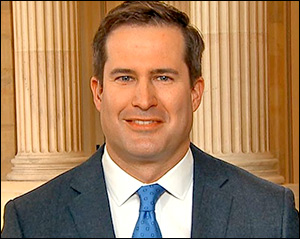By Jim Ellis
May 13, 2019 — The Hill newspaper ran a pair of articles late last week that discussed several points about the upcoming Democratic presidential nomination battle. The first piece was a story covering former Vice President Joe Biden’s prediction that many of the candidates will drop out of the race soon after the Iowa Caucus, thus winnowing the 22-person (and possibly as high as 24) contest down to a more manageable number.

What kind of role will super delegates play in 2020?
The Biden comments reflect a traditional view that one candidate may begin to build an early consensus by doing well in the first two voting events, the Iowa Caucus and the New Hampshire primary. Currently, these are scheduled for Feb. 3 and Feb. 11, 2020, respectively.
The flaw in the Biden argument is that, combined, Iowa and New Hampshire only carry 65 first-ballot delegates, less than two percent of the entire first-ballot universe of 3,768. A candidate must obtain 1,885 delegate votes to win the nomination on the first ballot. Therefore, such a small early number is unlikely to be determinative, but the lowest tier of candidates, as fallout from the first votes actually being cast, collapsing due to a lack of funding is certainly a possibility.
The Super Delegates were a source of major controversy at the 2016 Democratic National Convention. At the time, the Sanders campaign contended that the nomination process was “rigged” because the non-elected Super Delegates were a block for Hillary Clinton, which would enable her to win the nomination even if Sanders forged a majority among the elected delegates. In the end, the Sanders’ supposition proved untrue – Clinton did win among the elected delegates – but, nevertheless, the Democratic National Committee changed the Super Delegates’ voting status as a result of the Sanders’ complaint.

 May 10, 2019 — Often in political polling, asking respondents about their second choice on a ballot test is quite telling. The Morning Consult firm polls regularly and they are the only prominent pollsters so far in this presidential campaign to consistently ask the second-choice question.
May 10, 2019 — Often in political polling, asking respondents about their second choice on a ballot test is quite telling. The Morning Consult firm polls regularly and they are the only prominent pollsters so far in this presidential campaign to consistently ask the second-choice question.

 April 22, 2019 — After once indicating that he was preparing to announce a presidential effort, former Virginia governor and ex-Democratic National Committee chairman Terry McAuliffe said that he would not become a national candidate. Rather, he said late last week, he plans to work in Virginia to help Democrats make further political gains in the Old Dominion.
April 22, 2019 — After once indicating that he was preparing to announce a presidential effort, former Virginia governor and ex-Democratic National Committee chairman Terry McAuliffe said that he would not become a national candidate. Rather, he said late last week, he plans to work in Virginia to help Democrats make further political gains in the Old Dominion.